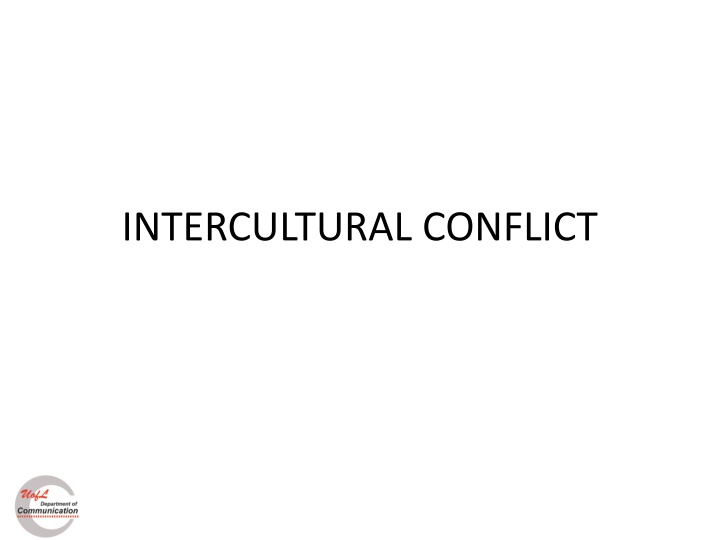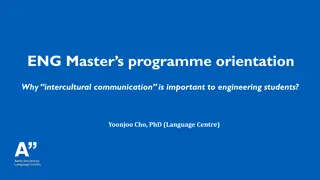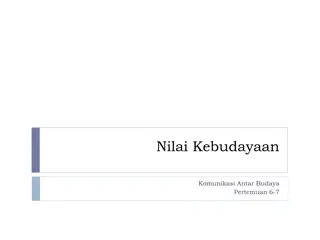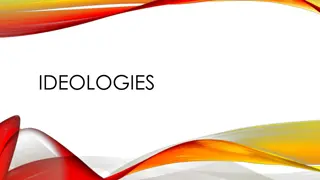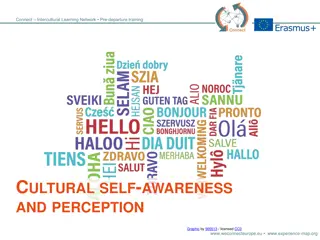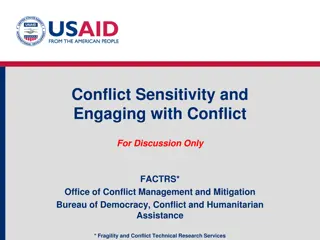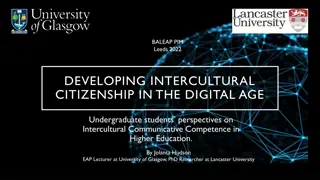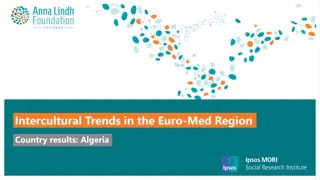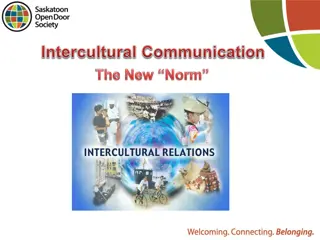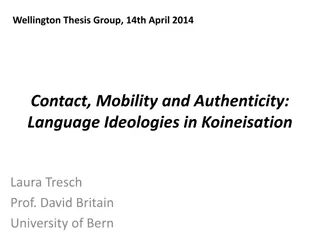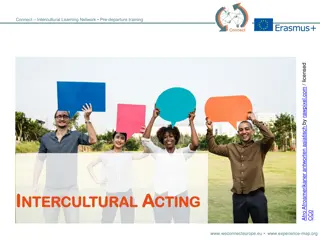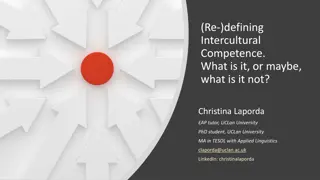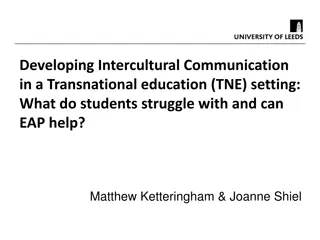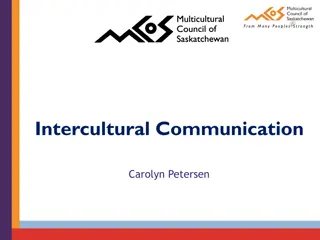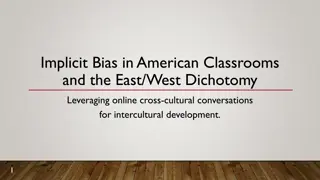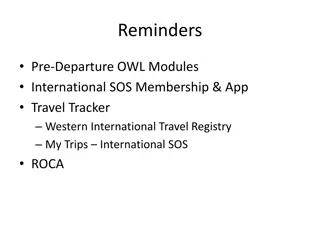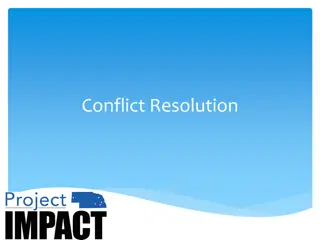Intercultural Conflict: Understanding Cultural Ideologies and Values
Intercultural conflict arises when individuals from different cultural backgrounds face emotional struggles due to perceived or actual incompatibilities in ideologies, values, norms, and goals. This complex phenomenon occurs in face-to-face interactions within sociohistorical systems. Various conflict models, such as Kim's Model and Culture-Based Social Ecological Conflict Model, provide insights into managing conflicts and enhancing conflict competence. Concepts like Face Negotiation Theory and Facework strategies shed light on how individuals manage conflicts based on their cultural backgrounds and self-image. Communication styles and the Intercultural Style Inventory further contribute to understanding and addressing intercultural conflicts.
Download Presentation

Please find below an Image/Link to download the presentation.
The content on the website is provided AS IS for your information and personal use only. It may not be sold, licensed, or shared on other websites without obtaining consent from the author.If you encounter any issues during the download, it is possible that the publisher has removed the file from their server.
You are allowed to download the files provided on this website for personal or commercial use, subject to the condition that they are used lawfully. All files are the property of their respective owners.
The content on the website is provided AS IS for your information and personal use only. It may not be sold, licensed, or shared on other websites without obtaining consent from the author.
E N D
Presentation Transcript
INTERCULTURAL CONFLICT Intercultural Conflict
Defining Intercultural Conflict The implicit or explicit emotional struggle between persons of different cultural communities over perceived or actual incompatibility of cultural ideologies and values, situational norms, goals, face- orientations, scarce resources, styles/processes, and/or outcomes in a face- to-face (or mediated) context within a sociohistorical embedded system.
A Culture-Based Social Ecological Conflict Model Layers: macro, exo, meso, and micro Includes conflict competence criteria and outcomes Highlights primary orientation factors effectiveness/appr opriateness situational appraisals productivity/satisfa ction conflict processes conflict competence principled ethics.
Face Face a person s sense of favorable self-worth or self-image experienced during communicative situations. Face Negotiation Theory explains how people of different cultures manage conflict. Emotional extension of self-concept A universal concept
Facework Facework the communicative strategies employed to manage one s own face or to support or challenge another s face. Can be used to initiate, manage, or terminate conflict. Facework strategies: Dominating Avoiding Integrating Self-face need vs. other-face need
Avoiding Integrating Dominating Communication Conflict Styles Neglect Obliging Emotional expression Compro- mising Third-party help
The Intercultural Style Inventory (ICS) a theoretical model and assessment tool used by professional mediators and trainers Conflict style, then, is the behavioral component of conflict How direct/indirect and emotionally expressive/restrained one is defines his or her intercultural conflict style
Individualist vs. Collectivism in Conflict Individualists are outcome-oriented in conflict. Individualists become frustrated when feelings aren t asserted honestly. Conflict is perceived as productive when tangible resolutions are reached. Collectivists are process-oriented in conflict. Conflict is perceived as threatening when substantive issues are addressed before facework management. Conflict is perceived as unproductive when face issues and group feelings are not addressed properly.
Context and Conflict Low-context cultures are more direct and explicit in conflict. Separate conflict from the individual. Prefer a solution-oriented style. High-context cultures are more indirect and implicit in conflict. Connect conflict with the individual. Prefer a non-confrontational style.
